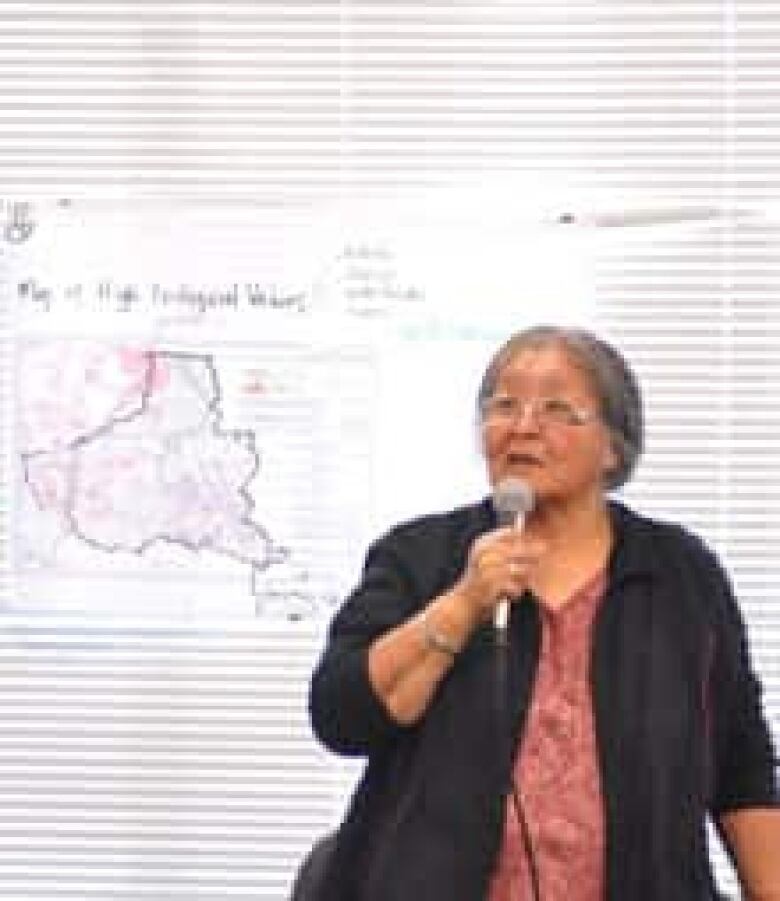Fort McPherson opposes Peel watershed mining
Watershed too valuable to mine or drill in: residents

Concerned residents campaigned to prevent any mining, oil drilling or industrial development in the watershed.
The Yukon government is touring the Northwest Territories and Yukon, gathering opinions on a recommended land-use plan for the region.
The current draft proposes to limit development on 80 per cent of the watershed area — up from 50 per cent in the first round of consultations.
While 8,000 existing mineral claims would be honoured in this zone, the sites could be only accessed by air and no roads could be built.
About 60 people crowded Fort McPherson's recreation centre for Tuesday's public meeting. The room was decorated with children's drawings of the river, animals and traditional life.
Environmental damage feared
Chief William Koe of the Tetlit Gwich'in said his community was united in its opposition to any industrial development in the watershed, including the existing mineral claims — all of which were signed before negotiations began on the land use management plan.
"The people are saying they want it protected 100 per cent," said Koe. "They want to keep this place pristine, quiet and peaceful. We don't want any development up there. We have three of the most important rivers of the world.
"We're right down the river," Koe added. "If any environmental damage happens, we are the ones who will be affected. Aklavik will be affected and it'll go right down to the ocean."
Charlie Snowshoe, an elder from Fort McPherson, said the government should cancel the existing mineral claims. "They were signed before and it shouldn't have been done," he said.
This call for complete protection, meaning no industrial development of any kind, has also been issued aboriginal groups in Yukon.
The Peel watershed is home to four different aboriginal peoples: the Na-Cho Nyak Dun, Tr'ondek Hwech'in, Vuntut Gwich'in and Tetlit Gwich'in.
"The world is running out of water, and in a few years it'll be as important as oil and gas. And we'll have all the fresh water here," said Fred Ross, 22, who was one the first speakers at the Fort McPherson meeting.
"Our people survived here for 20,000 years just from the land. We can`t let development take it over."
Elders speak against development

"At one time I think I would have been yelling, because I am so angry," she said.
"We see the things that are happening because of development. We know there is pollution. We know that our land is being destroyed. Even our people are being destroyed.
"I am in my old age now, and I want to speak out on behalf of my people. I want to be heard. We don't want no 80 per cent, we want 100 per cent total protection of the Peel River watershed," Teya added.
"We want to continue to be healthy. We want our families to continue to be healthy. It's the last we've got. We hear about the [Alberta] oilsands, poison leaking into the rivers … we need to ask for total protection."
The Peel River watershed is one of the largest undisturbed freshwater ecosystems in Canada. It spans across parts of Alaska, the N.W.T. and Yukon.
Elder Robert Alexie Sr. said an intact watershed would be more valuable than any industrial development of the area.
"I say if we leave it alone, if it's protected, my young people will be wealthy for the rest of their lives," Alexie said.